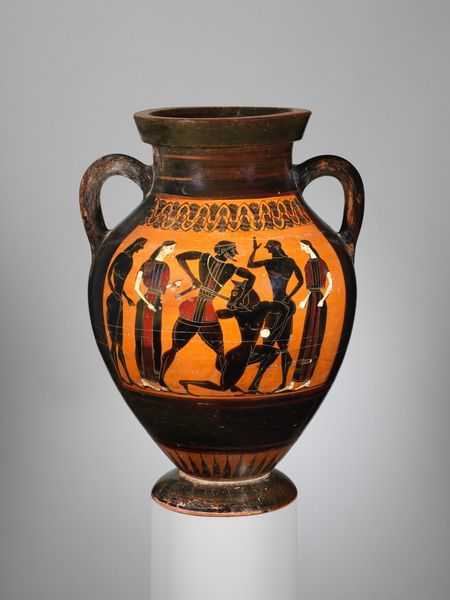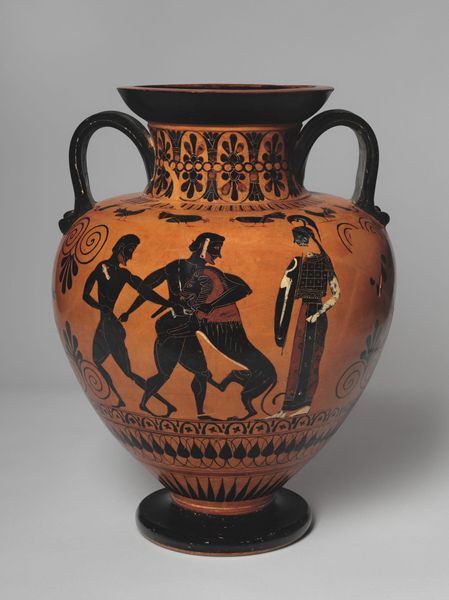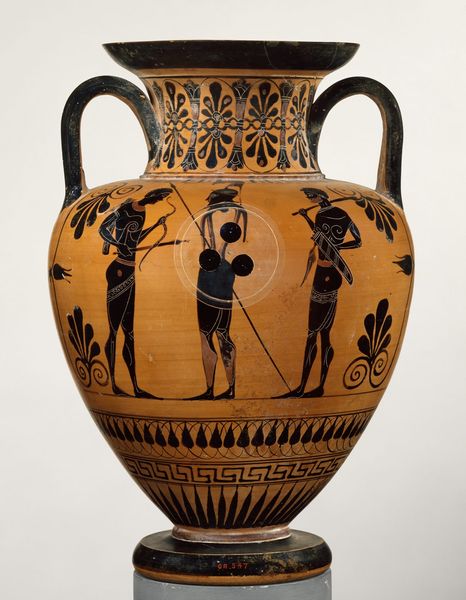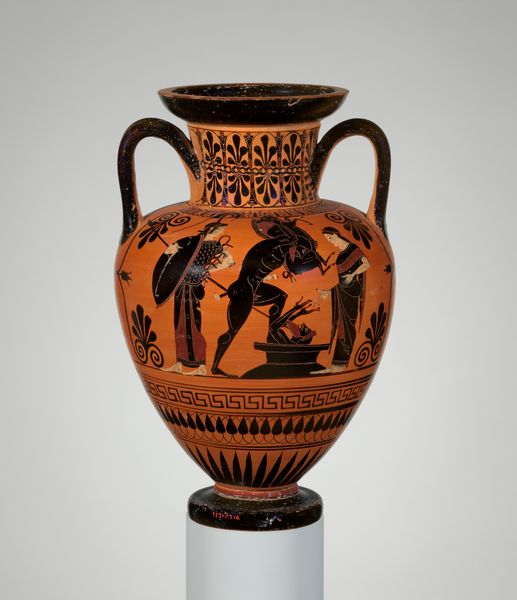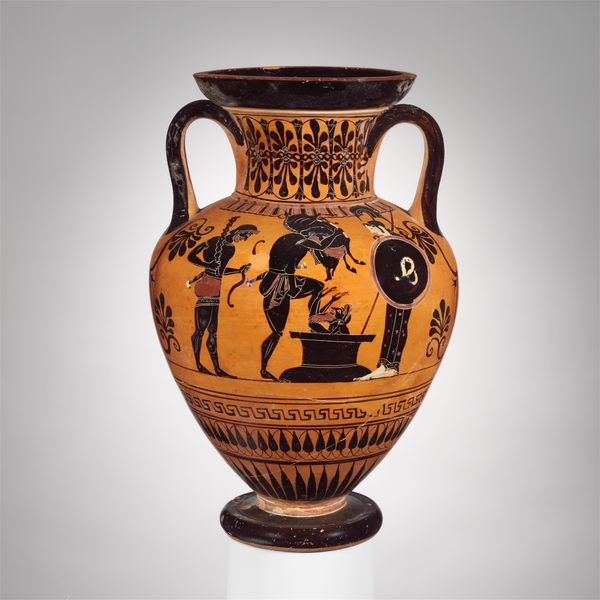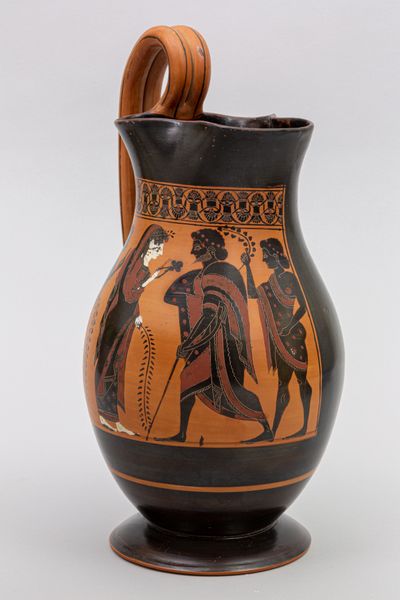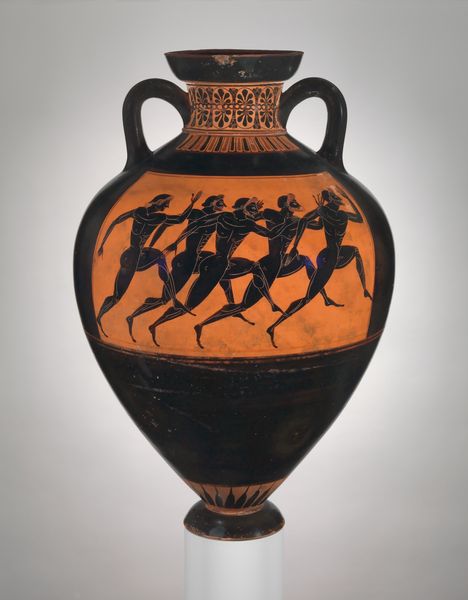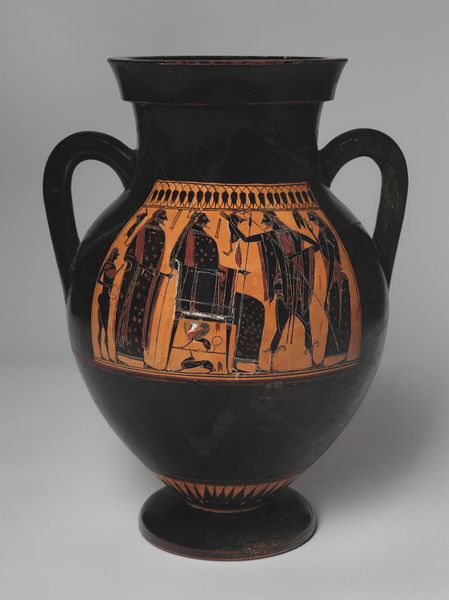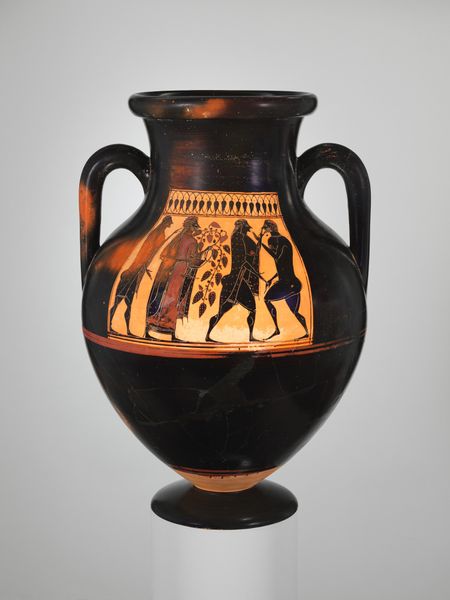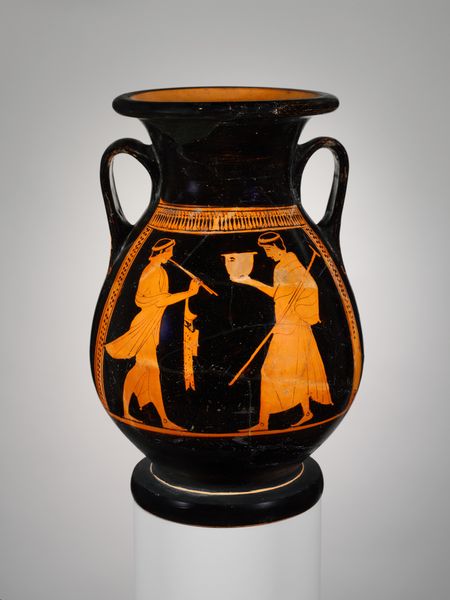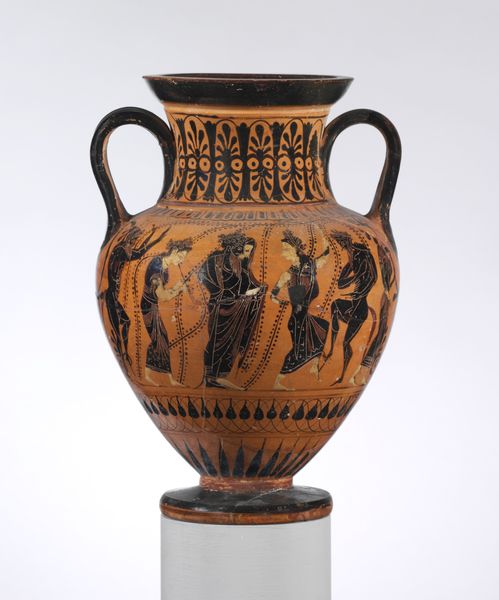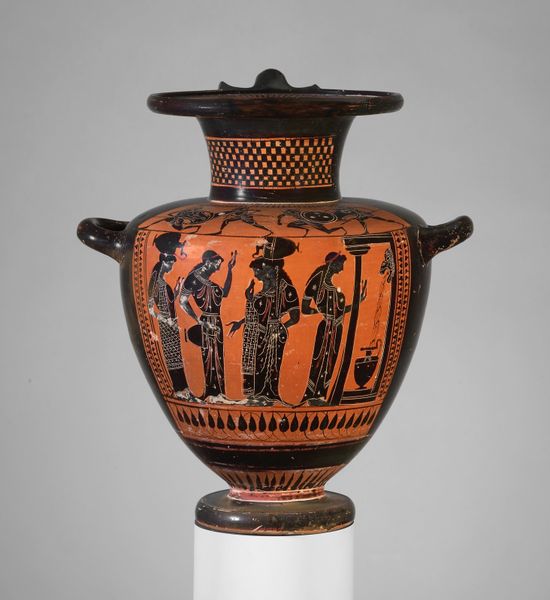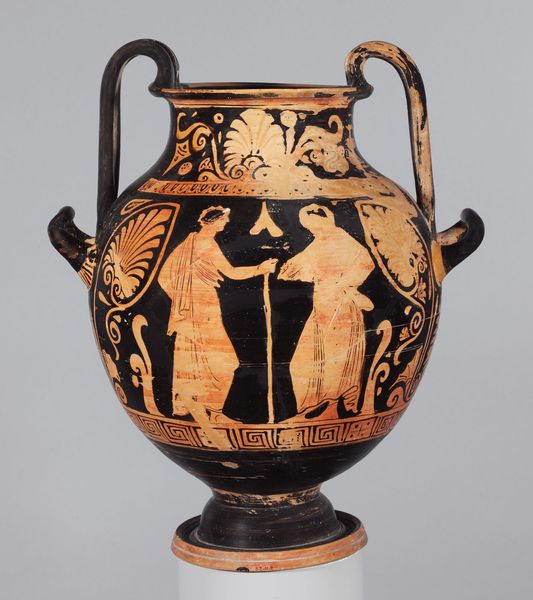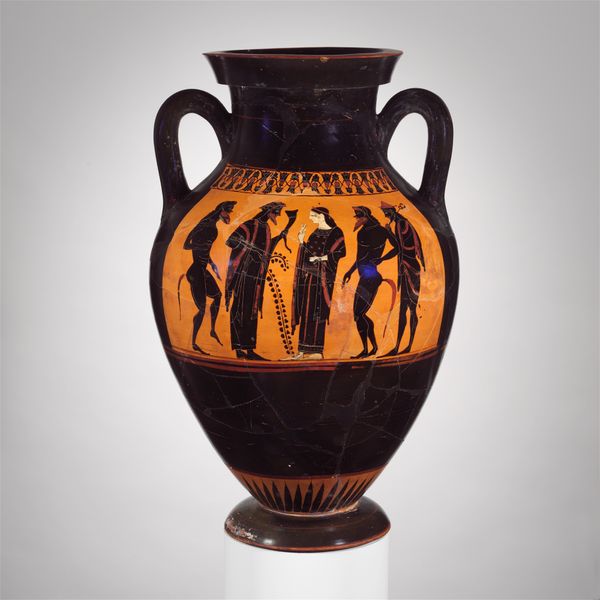
drawing, ceramic, terracotta
#
drawing
#
narrative-art
#
pottery
#
greek-and-roman-art
#
war
#
ceramic
#
figuration
#
ancient-mediterranean
#
horse
#
ceramic
#
terracotta
Dimensions: H. 14 5/8 in. (37.1 cm)
Copyright: Public Domain
This terracotta neck-amphora was made in Attica, Greece, around 550 to 540 BCE, by an artist known only as Group E. Vases like these held wine or oil, commodities at the heart of Athenian social life and commerce. Attic vase painting provides insight into the values and beliefs of the ancient Greeks. The black-figure technique seen here, with its emphasis on silhouette and stylized forms, became a dominant mode of representation. The image creates meaning through visual codes. Note the figures are rendered in black against the reddish clay ground, and the scenes often depict mythological or heroic narratives – here possibly a scene from the Trojan War. The craftsmanship reflects the economic and cultural vibrancy of Athens during this period. Analyzing the visual language, combined with archaeological and literary sources, can offer a window into the social structures and cultural values of ancient Greece. The Group E amphora is not just a vessel, but a testament to the power of art to communicate across millennia.
Comments
No comments
Be the first to comment and join the conversation on the ultimate creative platform.
